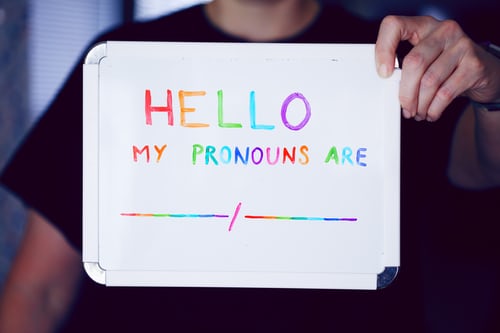New survey confirms gender-affirming surgery boosts youth mental health.
A new study revealed an association between gender-affirming surgeries, which participants had undergone at least two years prior, and significantly lower rates of psychological distress, suicidal ideation, and smoking (when compared with those who had not had surgery but wanted it). The research, published April 28 in the journal JAMA Surgery, provides evidence that builds upon limited existing data on the association between surgery and mental health outcomes.
Some states have recently attempted to ban gender-affirming treatments and surgeries for transgender minors, and the American Medical Association (AMA) recently urged state governors to oppose legislation prohibiting medically necessary transition-related care. As one example, Arkansas has become the first state to enforce this ban on transgender youth with the state forbidding medical practitioners to provide hormone treatments, puberty blockers or surgery to anyone under 18 years old.

Lead author Anthony Almazan, an MD/MPH candidate at Harvard Medical School, explained, “Going into this study, we certainly did believe that the gender-affirming surgeries would be protective against adverse mental health outcomes. I think we were pleasantly surprised by the strength of the magnitudes of these associations, which really are very impressive and, in our opinion, speaks to the importance of gender-affirming surgery as medically necessary treatment for transgender and gender diverse people who are seeking out this kind of affirmation.”
Almazan continued, “We’ve seen, for example, that it’s still quite common for health insurers to routinely deny coverage for certain types of gender-affirming surgery, and that’s partly due to limited evidence for their health benefits. We conducted this study to fill these really crucial evidence gaps in hopes that it will help us both improve clinical care and work toward policies that ensure more expansive, equitable and affirming care for transgender and gender diverse populations.”
The research followed a previous U.S. Transgender Survey showing an overall reduction in stress and improvement in self-confidence. “Of the nearly 20,000 participants who endorsed undergoing one or more types of gender-affirming surgery, 12.8% had undergone surgery at least two years prior and 59.2% wanted to undergo surgery but had not,” the data revealed.
“About 38.8% of participants identified as transgender women, 32.5% as transgender men and 26.6% as nonbinary. The study found that gender-affirming surgery was associated with a 42% reduction in psychological distress, a 44% reduction in suicidal ideation and a 35% reduction in tobacco smoking,” Almazan said.
senior study author Dr. Alex Keuroghlian, director of the National LGBTQIA+ Health Education Center at The Fenway Institute and director of the Psychiatry Gender Identity Program at Massachusetts General Hospital added, “Gender-affirming surgery can improve confidence, romantic relationships and other interpersonal relationships, such as in the workplace. If we align people’s bodies and gender expression with their gender identity, that is a way in which they can most authentically live their true lives and be their true selves, and also navigate society in a way where they are presenting as the gender they identify with. We think that that reduces distress significantly.”
Access to gender-affirming care continues to be inadequate across the U.S.
Sources:
Gender-Affirming Surgeries Improve Mental Health in Young, Study Says
Arkansas is first state to ban gender-affirming treatments for trans youth


Join the conversation!